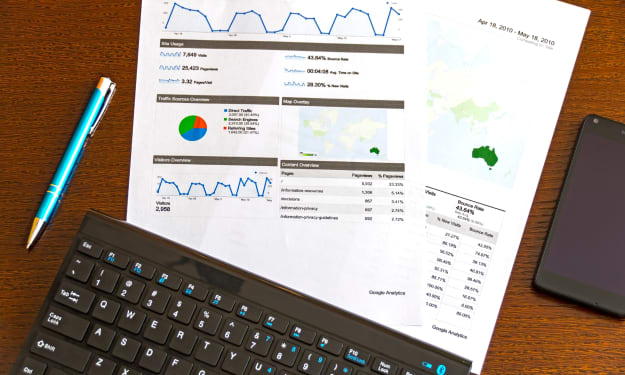The Shocking Reason Why DNS Settings Impact Your Internet Speed So Much
The Shocking Reason Why DNS Settings Impact Your Internet Speed So Much

It's no secret that DNS servers play an important role when it comes to your Internet speed, but did you know just how much of an impact they can have? Whether you're running into connection issues, your computer is being redirected or your browsing experience is slow and choppy, it can often be traced back to the DNS server settings on your network. Fortunately, it's not too difficult to find out why these problems are happening and make changes that help to fix them! To find out more, check out this helpful guide on The Shocking Reason Why DNS Settings Impact Your Internet Speed So Much by TechGenix!
What is a Domain Name Server (DNS)
A Domain Name Server, or more commonly known as a DNS, is the internet's equivalent of a phone book. It translates domain names into internet addresses (URLs) so that your browser knows where to find the website you're looking for. There are two types of DNS servers: public and private.
Private servers are used by organizations like big businesses, while public servers belong to internet service providers like Comcast and Time Warner. If you have your own business and want to use your domain name server, then you can set up your own public server on the side of one of these providers' servers. A few advantages to this are that it will not interfere with their network, but it will affect their downtime.
Also, some people may prefer not trusting their privacy to a company they don't know well. Private servers offer many benefits over public ones including filtering out content you don't want, modifying how the search engine rank results display and reducing load times. As far as choosing which type of DNS is best for you, there isn't necessarily any answer to this question other than it depends. The only way to know what type would be best is through trial and error.
Every Device Needs A DNS
Every device you use requires a DNS. Without it, you'll be stuck with the default IP address for that device. For example, if you have an iPhone and have to manually connect to WiFi every time, your phone will automatically detect the WiFi network's SSID and start a connection process with the default IP address assigned to that network.
If there is no DNS server set up in your area then the phone will just try to connect using another random one it finds. This means that even if there is a better signal on an alternative server nearby, your phone won't know about it because of its lack of an assigned DNS. In order to get around this problem you could change the DNS settings on your home router so that all devices would go through a certain DNS (like Google Public or OpenDNS). When done properly, this can significantly improve your internet speed.
Does My ISP Manage My Devices’ DNS
Some ISPs do handle your DNS. A few examples are Comcast, Cox, RCN, and Spectrum. If you have an account with these companies and they handle your DNS, then there is a chance that your ISP is what's slowing down your internet speed.
To fix this problem, you'll need to contact your ISP and ask if they can change the provider to one of their choices that doesn't slow down internet speed as much. If they say no or refuse to help you in any way, then it may be time to switch providers. Another thing you could try is contacting your device's manufacturer and asking them for advice on how to fix the problem. You might want to try downloading updates from their website as well.
What If My ISP Doesn’t Manage My Devices’ DNS
What if your ISP doesn't manage your device’s DNS? ISPs typically manage their customer’s devices’ DNS settings. However, not all providers do this. If you are using a provider who does not manage your devices’ DNS, then you need to make sure that you are using the fastest and most current provider possible. But remember, even if they do manage it, they may be manipulating the results in order to get more customers or make more money.
I'm not just talking about changing their speed on purpose, but by providing inaccurate information. For example, I once found that one of my favorite websites would go down every time I typed in its URL into my browser's address bar. It took me months before I figured out why: They were purposely blocking access to the site because they were charging users for content that should have been free!
The page was still up and running -- just typing in its URL would send you to a site unavailable page! If an ISP is managing your DNS servers, there is no way for them to know what information is being accessed on a particular website because there's no way for them to monitor every single web request made on their network.
Is It Possible To Use Another Provider For My Devices' DNS
It is possible to use a different provider for your device's DNS settings, but it will vary from device to device. For example, you can change the settings on your router, or if you have a desktop computer with Windows 10 installed, you can set up a custom network using the instructions here.
If you're using an iPhone or iPad and have iOS 10 installed, it's relatively easy to change the DNS settings by going into Settings -> Wi-Fi and tapping on Configure IPv4. On this screen, there should be an option to enter alternate values for both fields. Simply click Save at the bottom of the screen after entering in any changes.
Common Mistakes When Changing Your Devices' DNS Settings
One of the most common mistakes when changing your devices' DNS settings is not making note of the differences in how certain browsers or operating systems handle DNS changes. For example, on Windows, if you want to change your system's DNS settings to OpenDNS, you should first open Network Connections and then click on Local Area Connection.
On Mac OS X, the procedure is different. You must first open System Preferences and then select Network. Here you will see a list of connections. Click on the one which is using DHCP and then click Advanced. Finally, select Routers from the menu bar and enter OpenDNS's IP address in the field for manual configuration.
Conclusion - Which Provider Is Best
Choosing a good provider for your internet is important. Check out what the different providers have to offer, and find one that suits you best. Google Fiber offers speeds of up to 1 gigabit per second, which is faster than any other company on this list. If you are looking for something more affordable than Google Fiber but still want a high speed connection then AT&T U-verse has the fastest speeds of any other company listed at 100 megabits per second.
Cablevision’s Optimum service will give customers 50 megabits per second download speeds if they sign up for their broadband service. It costs $39.99 per month with no contract needed so it’s easy to switch providers in order to get better performance if they don’t offer what we are looking for with their service.






Comments
There are no comments for this story
Be the first to respond and start the conversation.